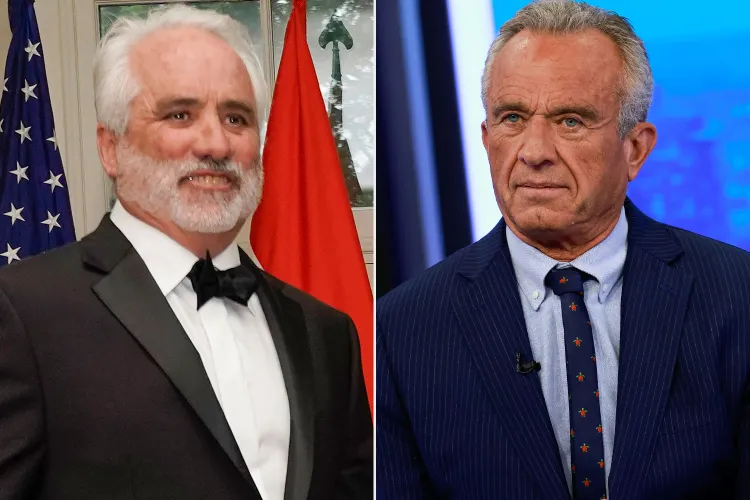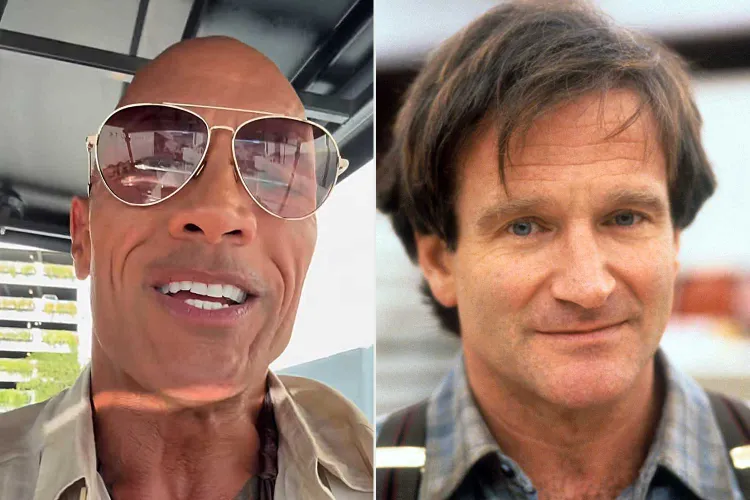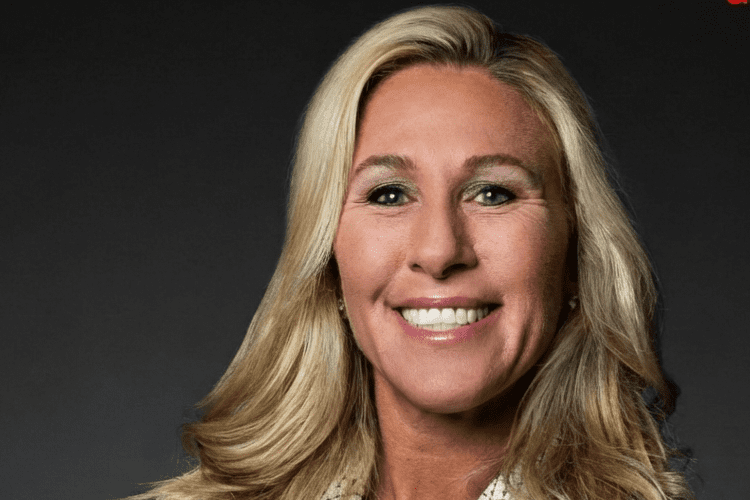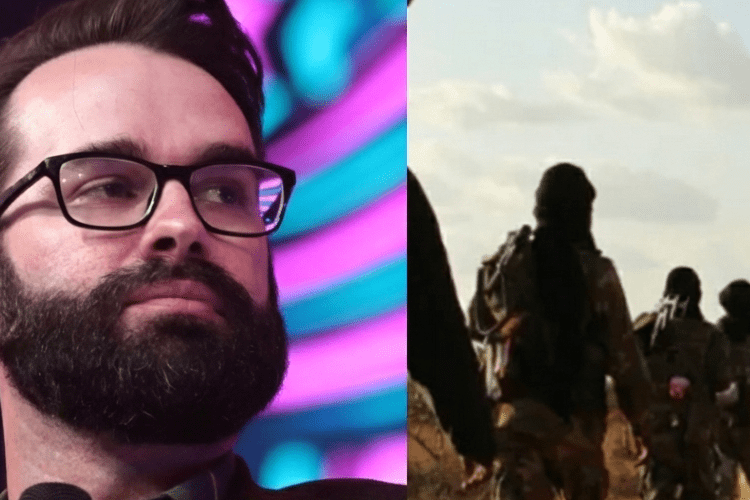Maxwell Kennedy Accuses Health Secretary Robert Redfield of “Betraying” Robert F. Kennedy’s Legacy and Being “Complicit” in Trump’s “Cruelty
Robert F. Kennedy Jr. has long loomed large in a storied American political dynasty, but the broader Kennedy family is now airing sharp internal critiques that underscore just how fraught that legacy has become. In a pointed op-ed timed with what would have been the centennial birthday of his father, the late Senator Robert F. Kennedy, Maxwell Taylor Kennedy offered a searing rebuke of Health and Human Services Secretary Robert Redfield — a longtime Republican appointee — accusing him of betraying Joe Kennedy’s (and their father’s) ideals and complicity in what he called President Trump’s “cruelty.” The commentary arrives in a moment of heightened political polarization, putting the Kennedy name at the intersection of ideology, family loyalty, and generational change.
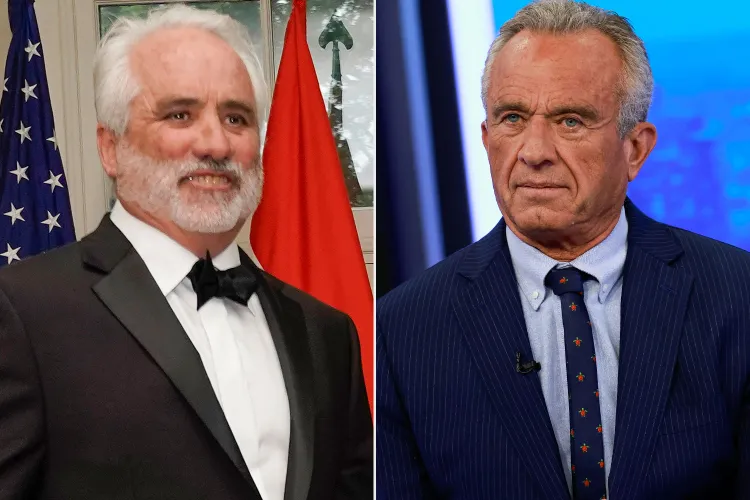
Maxwell Kennedy, the ninth of 11 children born to Robert F. Kennedy and Ethel Skakel, published the op-ed in The Boston Globe this week. Maxwell wrote that were his father alive today, he would be “taking stock of the country he loved and served,” but would also recognize how far the government and power structures have strayed. Within that reflection, he delivered a blow: a claim that Robert Redfield, whose role as Secretary of HHS places him at the forefront of national health policy, has cast aside the legacy of public service and justice that Robert F. Kennedy championed during his brief but impactful career.
The accusation is bold: Maxwell argues that Redfield, who has served in government and public health roles for decades, holds responsibility not only for policy decisions but for how America treats the most vulnerable. “To ignore your brother’s voice, your uncle’s memory, and your father’s sacrifice,” Maxwell wrote, “is to be complicit in cruelty.” Redfield was not named directly in every paragraph, but the implication was clear — that this high-ranking official, aligned with the administration and its policies, has failed to uphold the moral standards Kennedy believed in.
While the Kennedy family has always maintained a public face of unity, internal criticism is not unheard of. But Maxwell’s criticisms are distinct in their language and scope. They go beyond politics to claim a betrayal of values. They suggest that the Kennedy legacy isn’t simply a matter of name or lineage but a moral foundation. And that for someone in corridors of power, to drift from that foundation is to fail the very idea of service.
The context of the op-ed is also notable. It arrives in the 60th year since Robert F. Kennedy’s assassination, a moment when many in the family and public reflect on what his life stood for — civil rights, social justice, economic fairness, national service, personal integrity. Maxwell’s piece invites a broader public debate: what happens when legacy meets modern politics? What does a historical name mean today? And who gets to define whether a legacy is honored or abandoned?
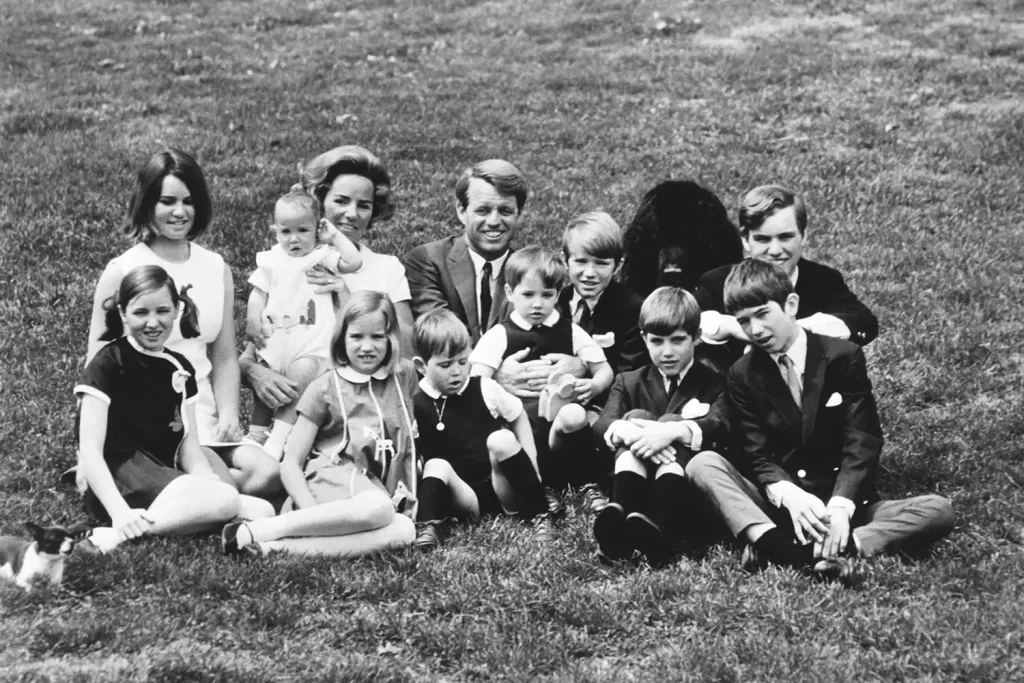
Robert Redfield, for his part, has a long record in public health — from leading the U.S. Centers for Disease Control and Prevention in a prior role, to serving as HHS Secretary. His defenders point to decades of service, particularly in health crises, including roles in global health, infectious disease research, and public safety. They argue that to conflate his policy decisions with moral betrayal is unfair and oversimplified.
Still, Maxwell’s assertion hinges on more than policy disagreements. He frames the unrest in the Kennedy orbit as generational — a younger member of the family questioning the assumptions and alignments of older counterparts and political actors. He raises concerns about institutional power, where fame, naming rights, and family legacy converge with public policy, national leadership and personal responsibility.
Redfield’s role in the Trump administration adds a further layer. The broader critique of “Trump’s cruelty,” as Maxwell describes it, gives the op-ed a sharp political edge. The piece suggests that some within the establishment, even in public health, may have crossed lines of moral accountability amid what the Kennedy family considers unacceptable behavior from the highest levels of government.
For readers unfamiliar with the Kennedy family’s internal dynamics, the public critique feels both intimate and surprising. Maxwell’s tone is direct, yet it draws on the personal: his father’s voice, his cause, his sacrifice. The statement that one of America’s enduring political families now views a sitting official — within health, service, and government — as betraying their legacy sends ripples beyond the family compound. It invites reflection on how names, history, and public responsibility intersect.

In an era when political legacies are often reexamined, challenged, and reinterpreted, the Kennedy name remains among the most potent. Robert F. Kennedy’s brief run for the presidency in 1968 — where he rallied young voters, called for peace, questioned power — left an imprint beyond his years. His assassination that year crystallized him into an icon of promise, possibility, and counterpoint to the establishment he challenged. Family members have carried that legacy into varied public arenas: law, activism, business, the arts. But Maxwell’s op-ed suggests the next generation of Kennedys feels that legacy is under threat not just from outside forces but from the inside.
Given the high stakes, a broader reckoning may be underway. What does it mean to serve? What does it mean to align with those whose actions contradict public ideals? To Maxwell and those he writes for, legacy is not passive. It demands vigilance. It demands accountability. He presented his critique not merely as family drama, but as a moral challenge — to those who hold power, and to those who carry names.
The reaction is already beginning. Media outlets are picking up on the op-ed, while political observers are analyzing whether the statement will reverberate through Washington corridors and beyond. Some families with great names have internal disagreements that remain private; this one is public. The ripple effect may extend far beyond this moment — potentially affecting how the Kennedy brand is perceived, and how its next generations choose to engage.
For Robert Redfield, the criticism serves as a reminder that public service carries symbolic weight as much as practical responsibility. Though the article focused on values more than specific policies, it casts a spotlight on how officials are judged not only for what they do, but for who they represent. In the end, Maxwell’s message was simple and profound: If you carry the name of service, don’t just wear it — honor it.
